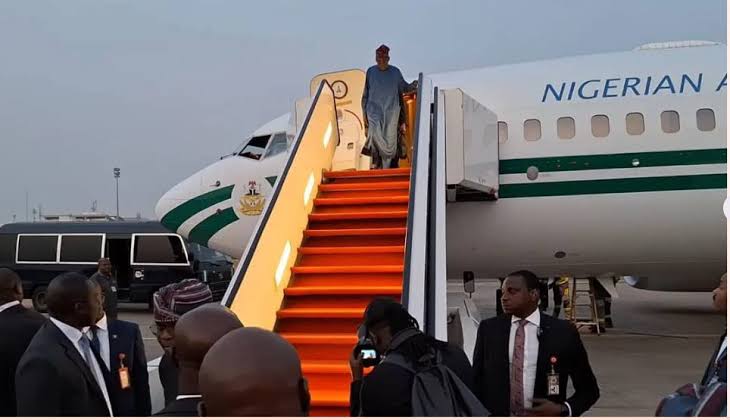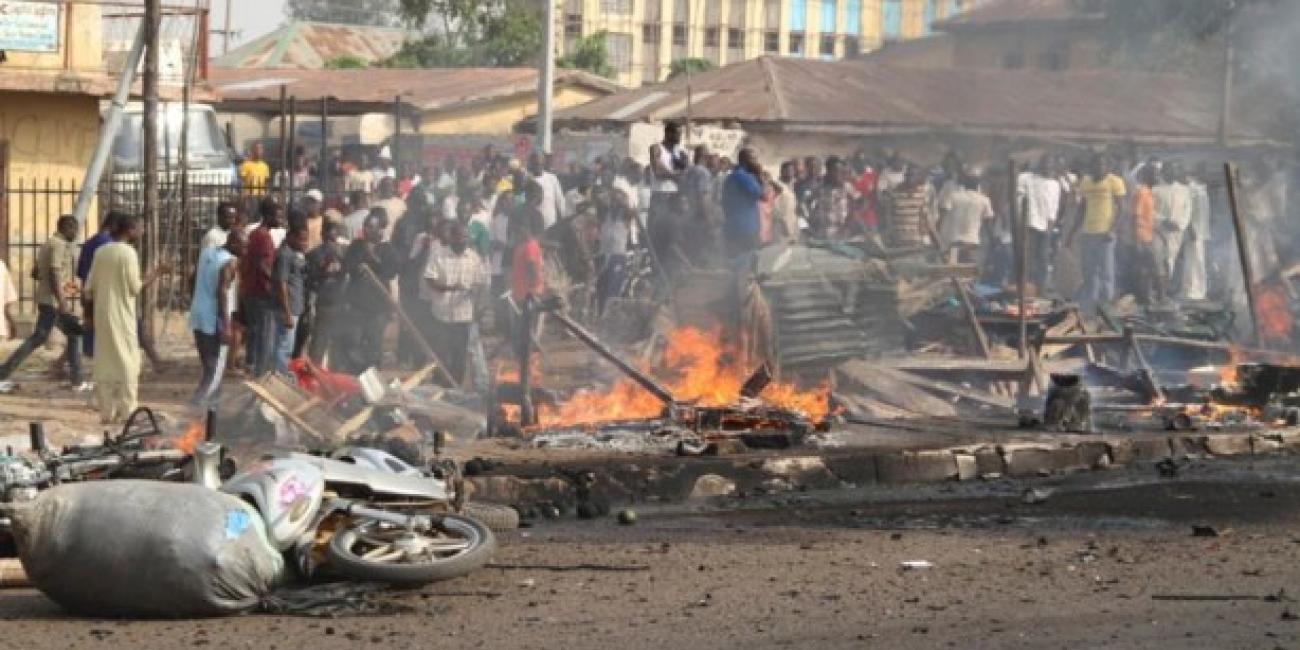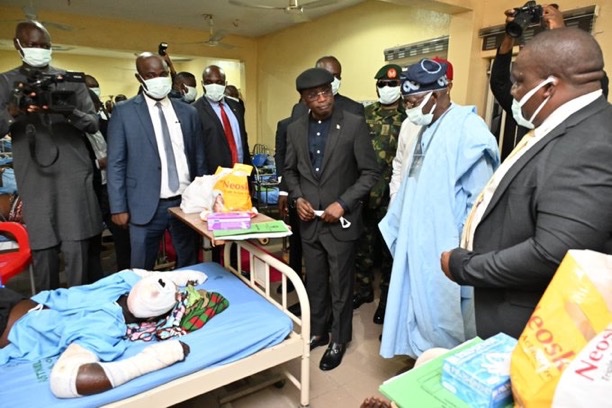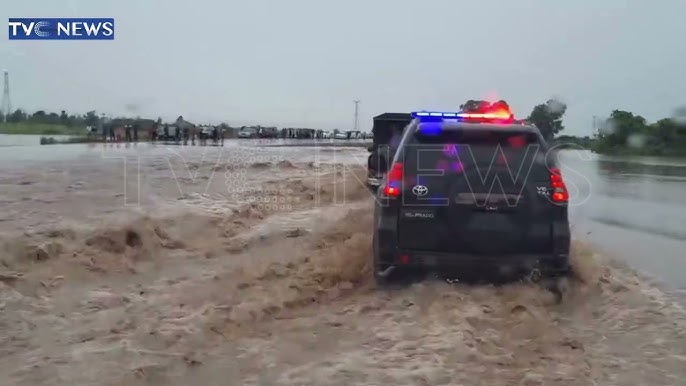President Bola Ahmed Tinubu arrived in Makurdi, the capital of Benue State, at approximately 12:58 p.m. on Wednesday, June 18, 2025, to address the tragic massacre in the Yelwata community, Guma Local Government Area, where over 200 people, predominantly women and children, were killed by suspected armed herdsmen between June 13 and 14, 2025. The visit, prompted by widespread national outrage and calls for federal intervention, underscores the administration’s commitment to tackling the escalating security challenges in the region. Accompanied by a high-level delegation, including security chiefs and key aides, Tinubu’s itinerary includes a tour of the devastated Yelwata community, engagements with affected families, and strategic discussions with state and local stakeholders.
The Yelwata attack, described as one of the deadliest in Benue’s recent history, targeted a farming community known for its vulnerability to herder-farmer conflicts. Reports indicate that the assailants, armed with sophisticated weapons, razed homes, destroyed farmlands, and displaced thousands, exacerbating the humanitarian crisis in the state. The Benue State Emergency Management Agency (SEMA) estimates that over 5,000 residents are currently in makeshift internally displaced persons (IDP) camps, lacking adequate food, medical supplies, and shelter.
Upon arrival at the Makurdi Air Force Base, President Tinubu was received by Benue State Governor Rev. Fr. Hyacinth Alia, alongside other top state officials, traditional rulers, and security personnel. The president proceeded to the Government House in Makurdi for a closed-door briefing with Governor Alia, who has been vocal about the need for federal support to curb the recurring violence. The briefing focused on the immediate needs of the affected communities and long-term strategies to prevent further attacks, including the deployment of additional security forces and the establishment of a special task force to address herder-farmer clashes.
Tinubu’s visit to Yelwata includes a somber tour of the attack sites, where he will witness firsthand the extent of the destruction and interact with grieving families and survivors. The presidency has confirmed that the president will also visit a local hospital in Makurdi, where dozens of injured victims are receiving treatment, to assess the medical response and ensure adequate support for the wounded. These engagements aim to demonstrate solidarity with the people of Benue and signal the federal government’s resolve to address the crisis.
A key highlight of the visit is a town hall meeting scheduled at the Benue State Government House Banquet Hall, where President Tinubu will lead discussions with a broad spectrum of stakeholders, including political leaders, security agencies, traditional rulers, and representatives of civil society organizations. The meeting will focus on identifying the root causes of the violence, which has been linked to competition over land resources, ethnic tensions, and the proliferation of arms among non-state actors. Stakeholders are expected to propose measures such as community policing, enhanced intelligence gathering, and economic interventions to address underlying issues like poverty and unemployment, which fuel unrest.
The Yelwata massacre has reignited debates over the federal government’s handling of security in Nigeria’s Middle Belt, particularly in Benue, which has been a flashpoint for herder-farmer conflicts for over a decade. Critics, including local leaders and human rights groups, have accused the government of failing to implement effective policies, such as the National Livestock Transformation Plan, which was designed to modernize pastoralism and reduce clashes. The Benue State government’s anti-open grazing law, enacted in 2017, has also been a point of contention, with some groups arguing it has escalated tensions with nomadic herders.
President Tinubu, in a statement issued prior to his arrival, condemned the Yelwata attack as “barbaric and unacceptable,” vowing to bring the perpetrators to justice and prevent future occurrences. He emphasized the need for a coordinated national response, including strengthening security infrastructure and fostering dialogue among conflicting parties. The presidency has also hinted at potential policy reviews to address gaps in the current approach to rural security and conflict resolution.
The visit has drawn significant attention on social media platforms, with many Nigerians expressing hope that it will lead to concrete actions rather than mere rhetoric. Posts on social media reflect a mix of optimism and skepticism, with some users urging the president to prioritize the protection of vulnerable communities and others calling for accountability for security agencies tasked with preventing such attacks. The hashtags #YelwataMassacre and #BenueUnderAttack have trended in Nigeria, amplifying calls for justice and support for the victims.
In addition to addressing the immediate crisis, President Tinubu is expected to announce relief measures for the affected communities, including humanitarian aid and reconstruction support. The federal government has already pledged to collaborate with international and local NGOs to provide food, medical supplies, and temporary shelter for displaced persons. However, analysts warn that without addressing the systemic issues driving the violence, such as land disputes and weak security presence in rural areas, the cycle of attacks is likely to persist.
Governor Alia, who has described the Yelwata massacre as a “genocide,” has called for the establishment of a military base in Guma LGA to enhance rapid response capabilities. He has also urged the federal government to expedite the prosecution of those arrested in connection with previous attacks in the state. The governor’s administration has faced criticism for its handling of the security situation, with some residents accusing it of inadequate coordination with federal authorities.




